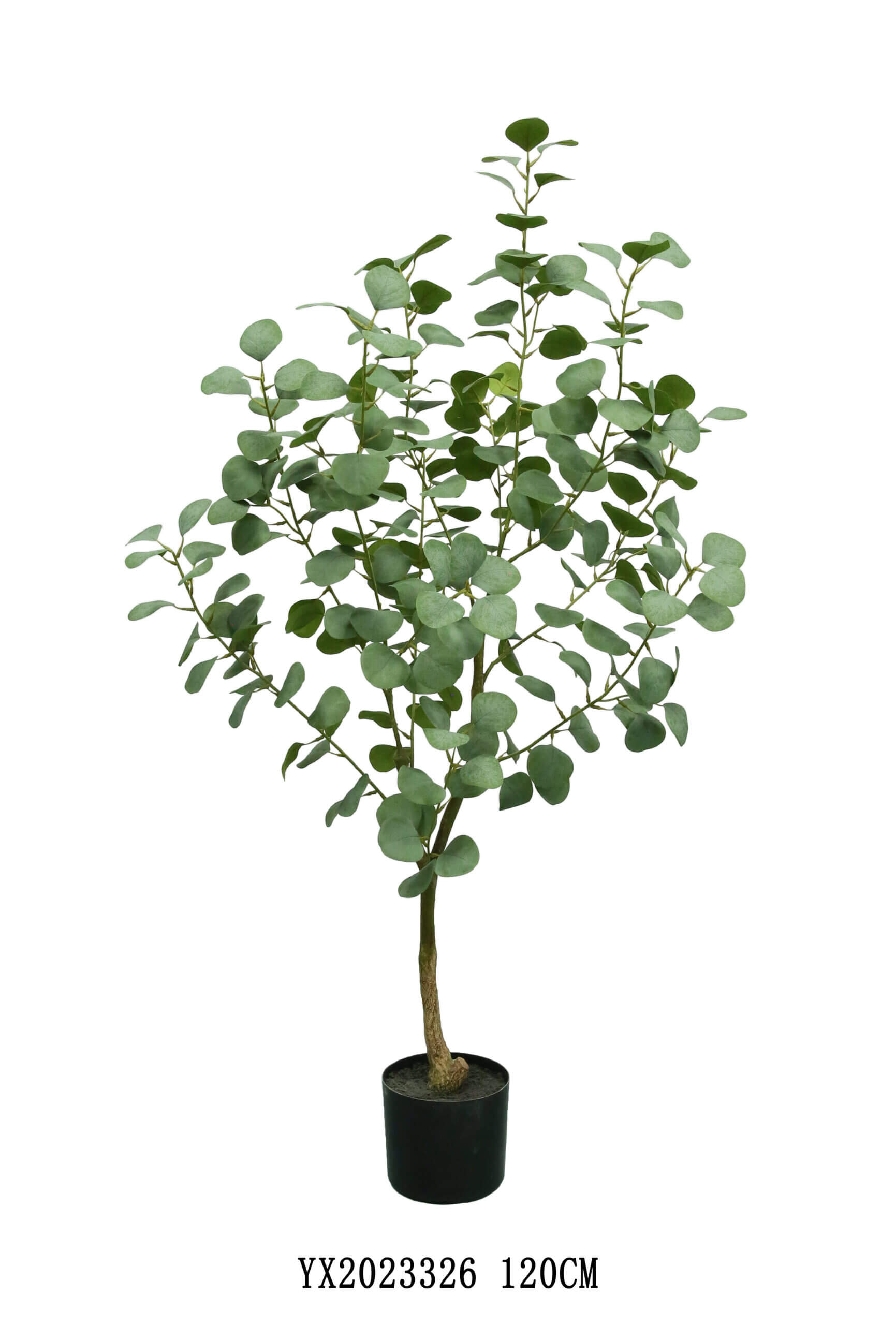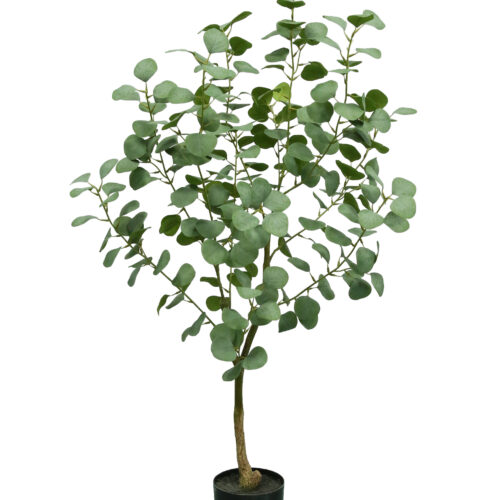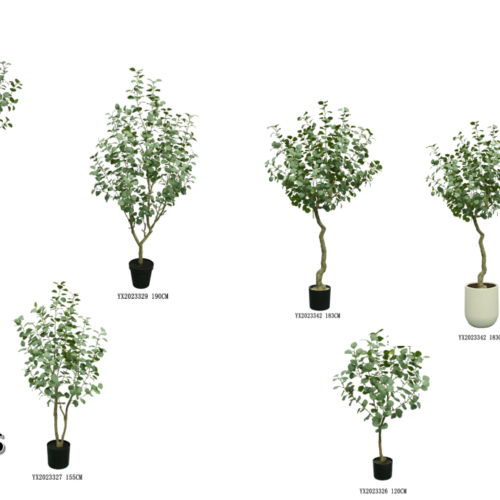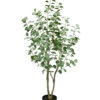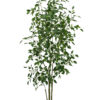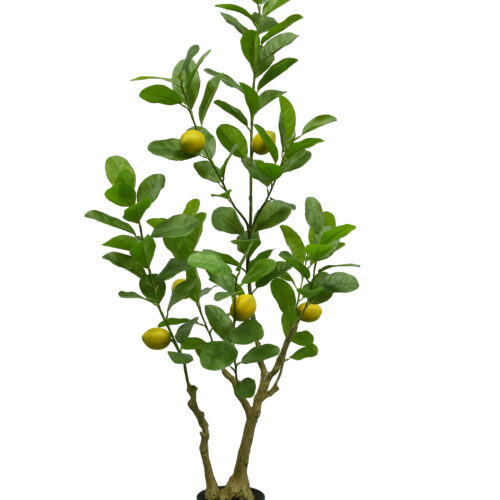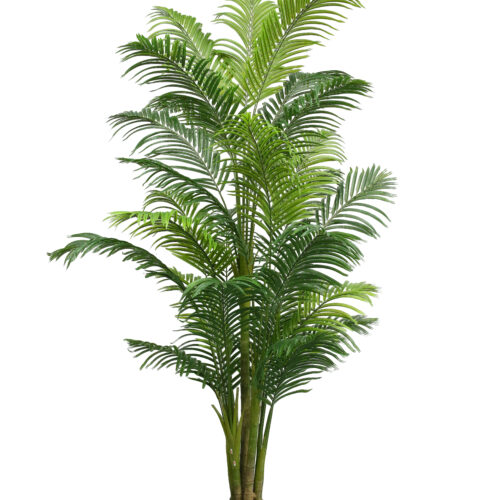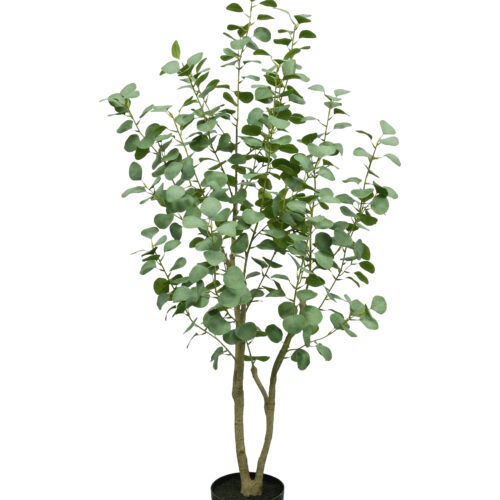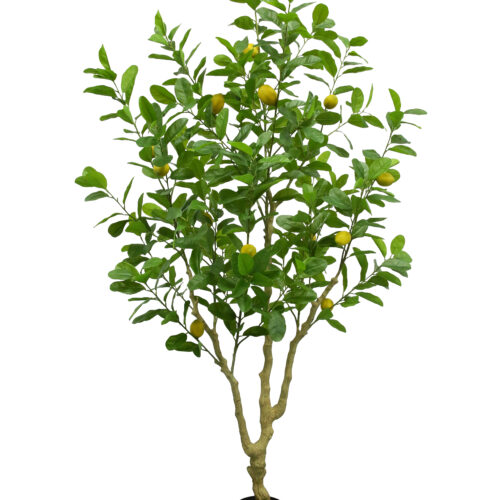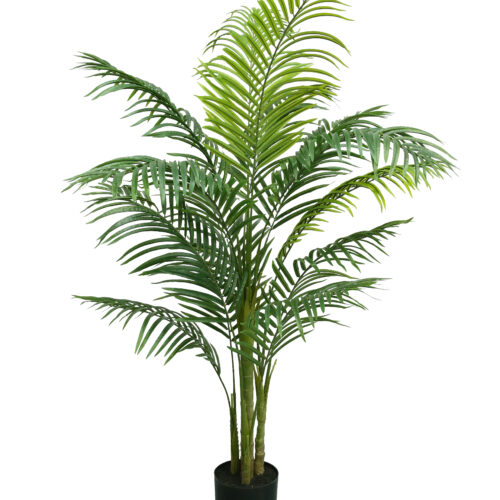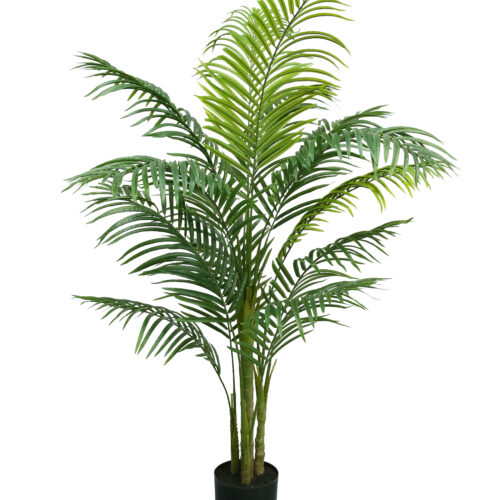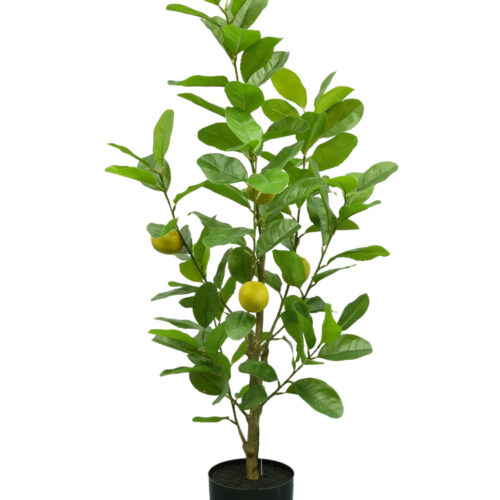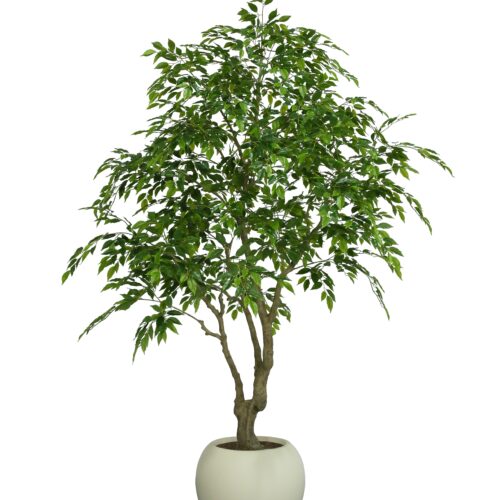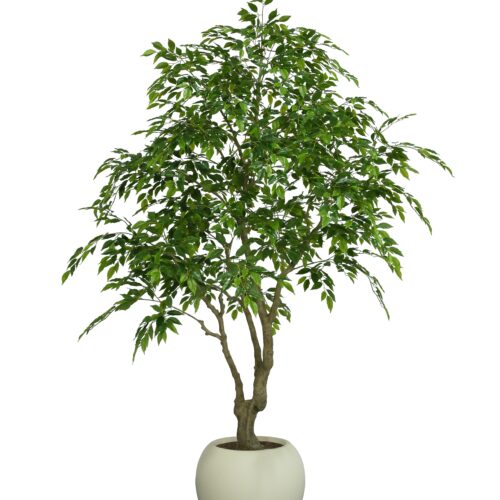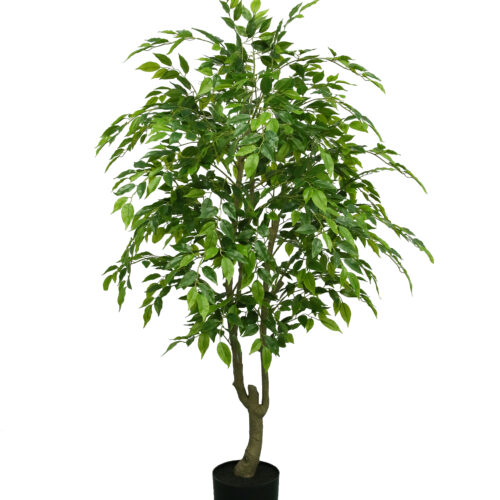246 LEAVES EUCALYPTUS
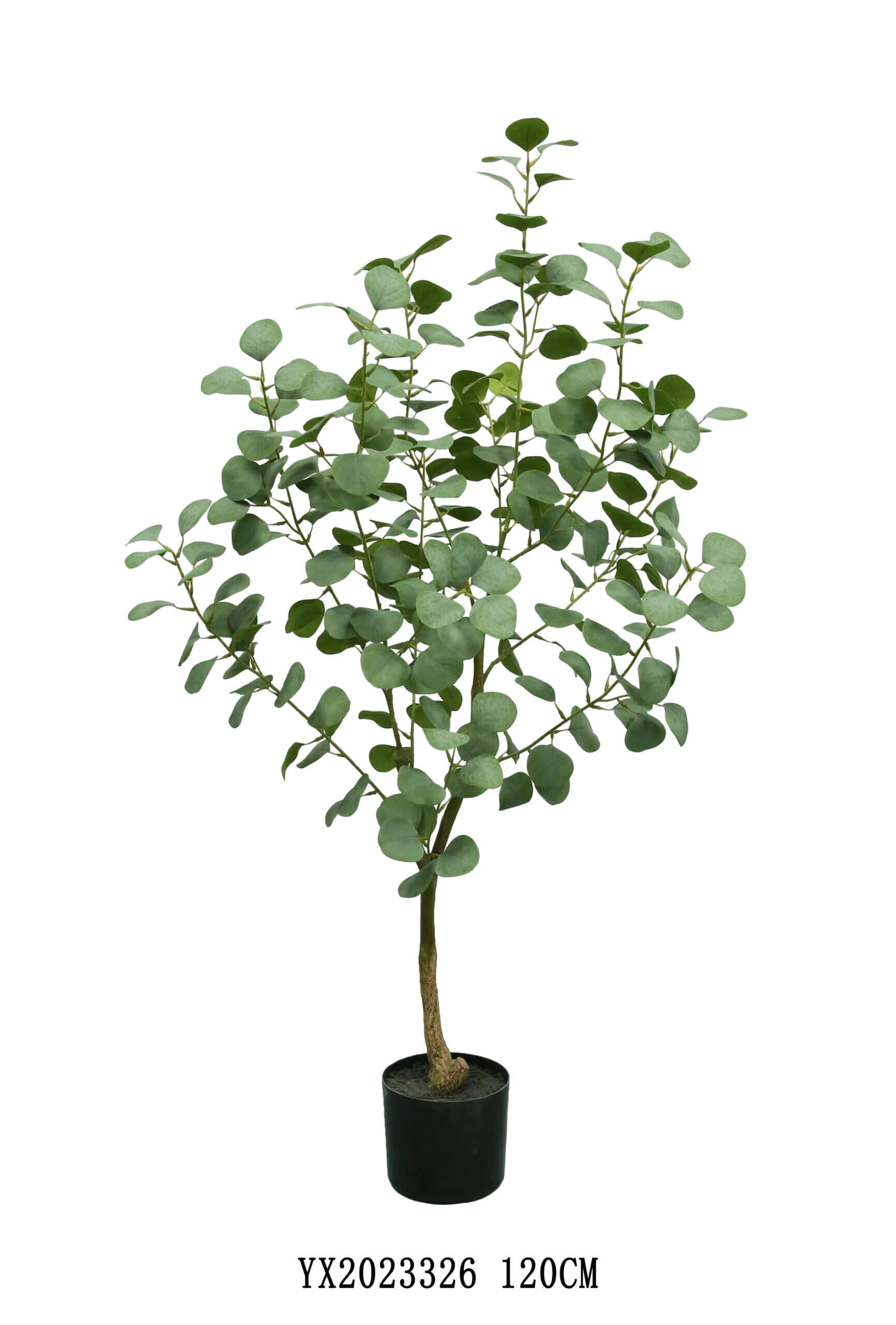
EUCALYPTUS

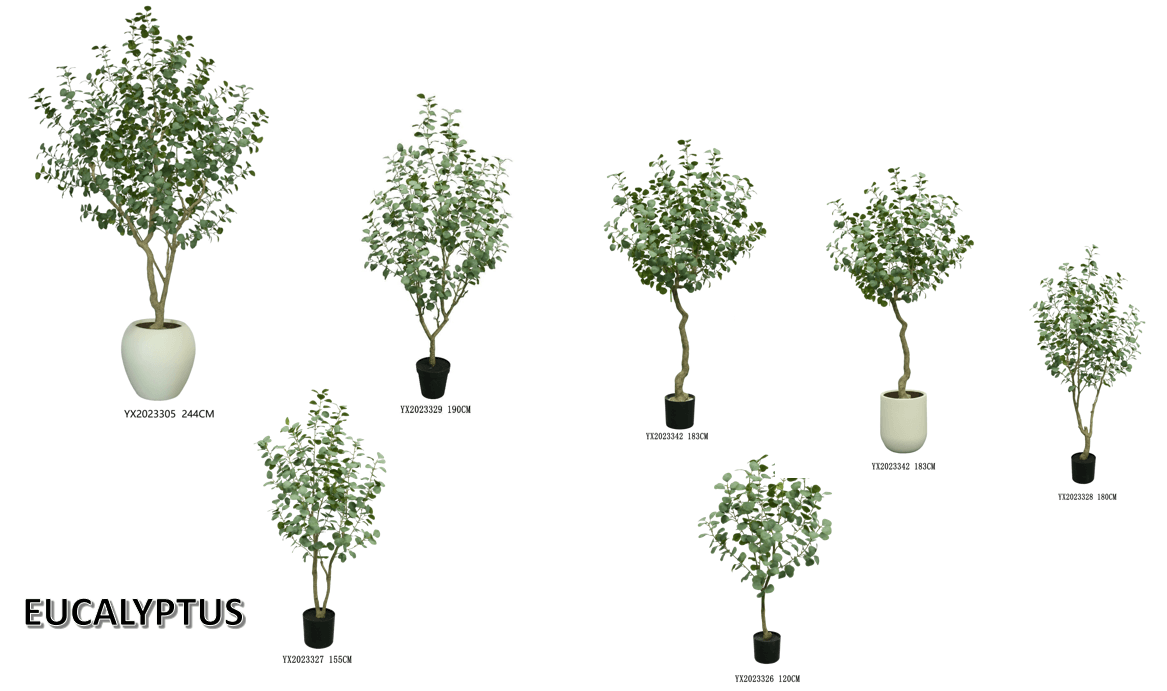
Artificial eucalyptus trees are man-made replicas designed to mimic the appearance of real eucalyptus trees.
Appearance:
They feature slender trunks and long, narrow leaves similar to those of natural eucalyptus. The leaves are usually crafted from synthetic materials like plastic or silk, colored to resemble the typical green of eucalyptus foliage. The trunks may be made of materials such as plastic or resin, molded to imitate the texture and shape of real eucalyptus trunks.
They feature slender trunks and long, narrow leaves similar to those of natural eucalyptus. The leaves are usually crafted from synthetic materials like plastic or silk, colored to resemble the typical green of eucalyptus foliage. The trunks may be made of materials such as plastic or resin, molded to imitate the texture and shape of real eucalyptus trunks.
Advantages:
- Low Maintenance: Require no watering, fertilizing, or pruning like real trees. Ideal for indoor or outdoor settings where natural growth conditions are not feasible or for those who don’t want the upkeep of live plants.
- Longevity: Retain their appearance for an extended period, not subject to seasonal changes, diseases, or pests that affect real eucalyptus trees.
Disadvantages:
- Lack of Authenticity: While they can look fairly realistic from a distance, up close they may not fully capture the true essence and details of a living eucalyptus tree, such as the natural movement of leaves in the wind.
- Environmental Impact: Depending on the materials used, if not recyclable or biodegradable, they can contribute to waste and environmental concerns.
Overall, artificial eucalyptus trees offer a convenient alternative for decorative purposes, especially when a long-lasting and maintenance-free greenery option is desired.
